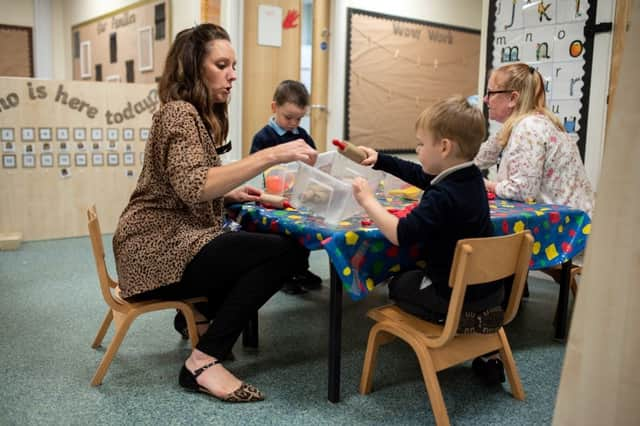Nurseries and playgroups are still allowed to open in lockdown - but is it safe?


England is in its third national lockdown since the coronavirus crisis began, after Boris Johnson shut schools to most pupils and imposed the toughest restrictions on the country since March 2020.
In a televised address to the nation on 5 January, the Prime Minister ordered the country to stay indoors other than for limited exceptions, in an attempt to prevent the NHS being overwhelmed by surging infections.
Advertisement
Hide AdAdvertisement
Hide AdMr Johnson bowed to significant pressure to order primary schools, secondaries and colleges to move to remote teaching for the majority of students, and pinned hopes on the rollout of vaccines to ease the restrictions in mid-February.
But though the restrictions are tough, Early Years settings (including nurseries and childminders) remain open. So why are they open when other education institutions are shutting?
Here is everything you need to know.
What are the new lockdown rules on schools in England?
In England, all primary and secondary schools and colleges will close their doors and move to remote learning, except for the children of key workers or vulnerable children.
But Early Years settings such as nurseries and childminders can remain open, and existing childcare bubbles will be allowed to stay in place.
Advertisement
Hide AdAdvertisement
Hide AdUniversity students will not be allowed to return to campus and will be expected to study from their current residence.
In-person university teaching will only take place for a small number of critical courses, including medicine, dentistry, teacher training, veterinary science and social work.
Why are Early Years settings still open?
Asked about the science behind why schools have closed but nurseries and Early Years settings remain open, virologist Professor Calum Semple said the decision to keep such institutions open was “not a scientific one”.
Speaking on BBC Breakfast, he said: “Under these circumstances, every opportunity to remove social mixing and work mixing of human beings is vitally important.
Advertisement
Hide AdAdvertisement
Hide Ad